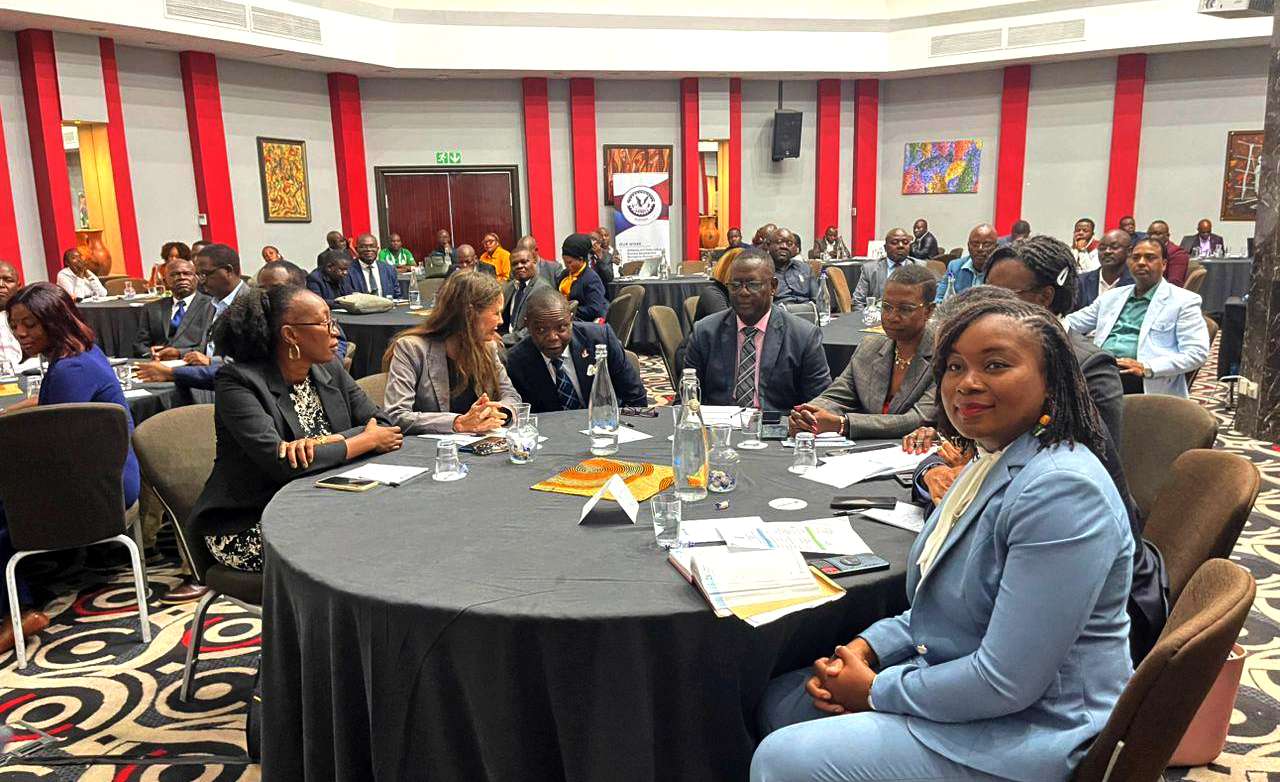
From bailiffs and closed businesses to an inclusive tax payment plan and increased government revenue, USAID’s Zambia Business Enabling Project (BEP), managed by DT Global, has transformed district-level business environments by facilitating private-public dialogue (PPD) to close communication and collaboration gaps and put local leaders at the forefront of policy reform.
Businesses in Zambia are not only governed by laws at the national level. They are beholden to local fees and regulations, which differ by district. Business owners are required to comply with additional procedures and inspections. The private sector, particularly smaller firms, often lack understanding of taxation and compliance requirements, and encounter duplication of licenses and multiple licensing systems, which cause confusion and can lead to high penalty fees for noncompliance. For this reason, BEP facilitates PPD platforms, which convene government officials and the private sector at national and local levels, establishing regular and open communication channels, contributing to a more inclusive policy implementation in Zambia.
Prior to BEP, several private sector associations had operated and developed sector development and investment plans without considering their respective Government of Republic of Zambia (GRZ) and other local government institutions. The GRZ has also passed legislation regulating the business environment with little to no consultation with the private sector. The disconnect between public and private sector led to private sector representatives voicing frustrations on matters affecting the business environment, but without any meaningful engagement with the relevant GRZ institutions to compromise on solutions.
The absence of PPD platforms for government strategic planning such as policy development, infrastructure plans, and investment development resulted in local authorities making decisions which did not always support business growth. For example, private sector business owners in Petauke, a rural town in Zambia’s Eastern Province, dealt with policies that hindered businesses and encountered bailiffs who closed local businesses that failed to comply with required fee payments, with no opportunity to appeal and overturn the infraction. The owners of these shuttered businesses were left without any income and no realistic path to pay their outstanding balances. In short, local businesses doors were locked, and local councils’ doors were closed for discussion.
Businesses failed to make payments for several reasons; some were in fault due to their own noncompliance, others were unaware of required fees for newly created licenses, while still, others fell victim to fake payment systems from fee collectors, low business turnover due to crises like COVID-19, among others. To recoup lost revenue due to non-payment of required business fees, district and province government councils increased fees and imposed more licenses for remaining businesses, which further increased the burden of compliance for business owners.
When BEP presented the concept of a PPD platform to the local chamber of commerce and industry (LCCI) and the council, including the town clerk, both parties were excited about the platform’s potential to solve the vicious cycle of noncompliance with required fee payments. Public and private sector representatives co-created the platform’s terms of reference and jointly manage it as co-chairs. At initial meetings following the official institutionalization of the Petauke PPD platform, it became clear that neither public nor private sector representatives understood the issues and the needs the other faced. The opportunity provided by the PPD platform to explain, listen, and co-create solutions to the problem that both parties encountered has led to a more conducive business environment benefiting both the public and private sectors.
Now when a business in Petauke is not compliant, the council alerts the LCCI, which works with the business owner to understand the reason for noncompliance and co-create a payment plan that enables the owner to keep the business running and pay back fees to the council over time. The PPD platform has benefited both parties by not only increasing compliance rates and revenue for the council, but also by generating a renewed sense of collaboration and trust between the public and private sectors. In Petauke, public and private sectors are thriving together to a higher economic growth. Closing information gaps like this through more effective dialogue provides opportunities to address constraints that require coordination.
PPDs can play a key role in ensuring that regulatory institutions do not stifle business growth while still allowing governments to receive the revenue they need to provide public services. BEP, working closely with stakeholders from the private and public sectors, co-created a Local PPD Toolkit to guide local authorities on conducting effective district-level PPDs that apply best practices of systems thinking for both the public and private sector. The Toolkit provides guidance on how to initiate and manage a local PPD platform, leadership selection for the platform, and criteria for selecting relevant and inclusive agenda items. To ensure that the Toolkit reflects the needs and input of local stakeholders, BEP, together with the Ministry of Commerce, Trade, and Industry, conducted validation exercises which further improved district-level stakeholder knowledge on PPD.
Today, both public and private sector stakeholders appreciate the value of local PPDs and as co-owners, are invested in the success of the initiative. By establishing the PPD platform as an official link between the public and private sectors, each can hold the other accountable in future meetings concerning the roadmap, policy advocacy agenda, and collaboratively develop agreements.
BEP has been able to create an enabling business environment throughout rural areas of Zambia by convening a diverse group of stakeholders to ensure that policy is developed and implemented for the betterment of the larger market system, rather than in the interest any specific party. These PPDs present a model for effective dialogue linking district, provincial, and national governments with apex private sector structures and demonstrate how to create sustainable forums for dialogue.